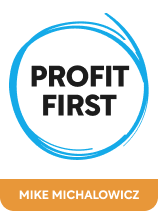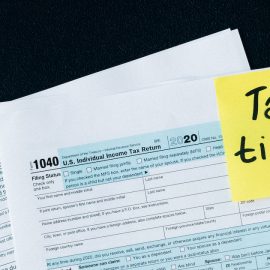

This article is an excerpt from the Shortform book guide to "Profit First" by Mike Michalowicz. Shortform has the world's best summaries and analyses of books you should be reading.
Like this article? Sign up for a free trial here .
How much of your company’s monthly profit should go into your salary? How much should you reinvest back into the business?
As a business owner or entrepreneur, it’s difficult to know how much of your profits you should keep for yourself and how much should be reinvested into the business. Some owners splurge and go overboard while others pay company expenses with their income.
Here’s how to pay yourself as a business owner, according to Mike Michalowicz.
Finding Your Ideal Salary Percentage
In his book Profit First, Mike Michalowicz explains how to pay yourself as a business owner. Many entrepreneurs, when faced with expenses too high for their income, end up taking the difference out of their own paychecks. Michalowicz stresses that you should not do this, because the goal of running a business is to gain financial freedom, not financial obligation. To determine an appropriate salary for yourself, Michalowicz recommends you use one (or all) of the following three guidelines.
Consider the Work You Do
Pay yourself the same amount you would pay an employee to do your work. Your paycheck should reflect the work you’re doing, and can occasionally include a bonus for your efforts.
Use the Healthy Percentage Table
Alternatively, you can determine your salary by using the healthy percentage recommended in Michalowicz’s table multiplied by your business’s yearly income.
| Adjusted Revenue Bracket (R) | A = Profit Result | A = Your Salary Result | A = Taxes Result | A = Expenses Result |
| 0 – 250k | 5% | 50% | 15% | 30% |
| 250k – 500k | 10% | 35% | 15% | 40% |
| 500k – 1m | 15% | 20% | 15% | 50% |
| 1m – 5m | 10% | 10% | 15% | 65% |
| 5m – 10m | 15% | 5% | 15% | 65% |
| 10m – 50m | 20% | 0% | 15% | 65% |
Employee Versus Entrepreneur
The larger your business grows, the less you’ll focus on day-to-day operations and the more you’ll spend time organizing, directing, and teaching your employees. Your pay should reflect this as well: You do less employee work, and so you earn a smaller salary. However, your increased entrepreneurial work will be compensated by your higher profit percentage.
| The Benefits of a Lower Salary You might be wondering why Michalowicz’s methods to determine an “appropriate” salary percentage encourage you to allocate yourself a salary appropriate for an employee, rather than the elevated salary more typical of a CEO. Paypal founder Peter Thiel offers an explanation in his book Zero to One. He outlines three reasons why a CEO should have a lower pay than is standard for their position. 1. Giving a CEO a high salary encourages them to coast, or maintain the status quo. Since they are getting a large amount of money just by showing up, they’ll be less motivated to work hard and improve the company. 2. Instead of a salary, a CEO should instead make most of their money through profit or equity. That way, the CEO will have a personal stake in the company’s success, which will help motivate them. 3. Thiel asserts that paying a CEO a lower salary will also motivate their employees to work harder. This is because they’ll see that the CEO isn’t just in it for the money, but has a genuine belief in the company and its ability to succeed—and employees will follow that example. |

———End of Preview———
Like what you just read? Read the rest of the world's best book summary and analysis of Mike Michalowicz's "Profit First" at Shortform .
Here's what you'll find in our full Profit First summary :
- Why traditional business accounting methods don't work
- How to use the Profit First method to increase your business’s profitability and stability
- How to assess your business's current financial health






